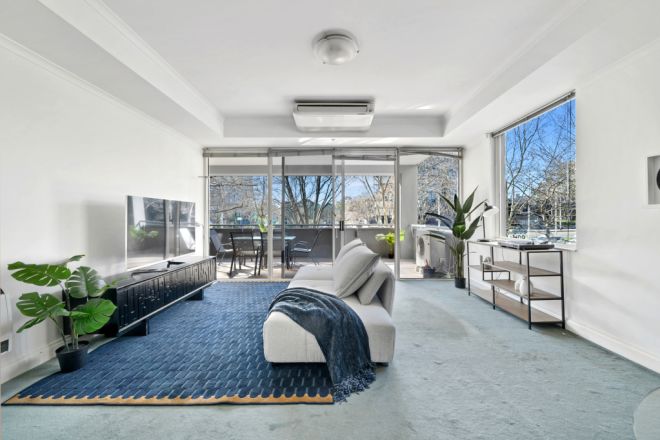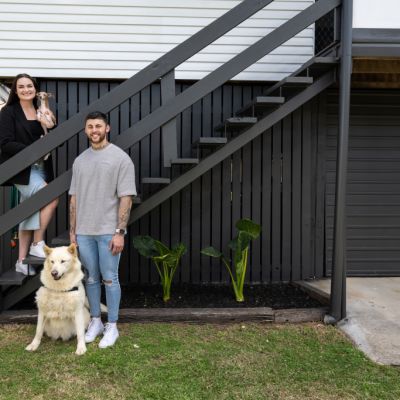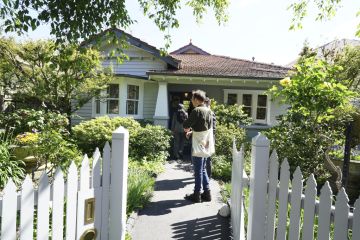So owning a home long term is always lucrative? It’s not
Conventional wisdom says owning a property for a substantial period of time will ensure a profit on resale, but new analysis shows that isn’t always true.
Among sales struck in the June quarter, profit-making resales had a median hold period of 8.9 years, CoreLogic research shows, while vendors who made a loss held on to their properties for a median 8.0 years – only slightly less.

For units, “hold period” made little difference. Unit resellers who made money owned their properties for a median 8.7 years, while unit resellers who lost money held them for 8.5 years.
Although some short-term flippers have been caught by rising interest rates, properties also risked losing value if they were of low quality or if they were owned by an investor who may be less affected by selling at a loss than an owner-occupier.
Even so, property owners who held for decades were more likely to make more money. The median gain by those who flipped in two years or less was $100,000, while those who held for more than three decades made almost $800,000.
The chance of making a profit or loss over time is due to a range of factors said head of Australian research at CoreLogic, Eliza Owen.
“Broadly speaking, Australian property values have increased for a long period of time whereas, in the short term, you are more likely to face short-term cyclical movements,” she said.
“Longer-term housing values have trended higher over time because of population increase outstripping the development of new homes, and I think just generally Australian housing being a pretty attractive investment over time has helped to push prices higher.”
While longer-term hold periods have equated to higher profit, whether a property is owned by an investor or an owner-occupier can be a factor in determining a profit or loss.
“Investors may be more willing to absorb the loss on an investment property because they can offset that loss on future capital gains,” Owen said.
The quality of the property can contribute.
“What we found in a lot of high-density housing markets in the 2010s was that a lot of the apartments constructed were specifically for an investor purchaser, and so when investors came out of the market, there was often a very particularly poor-quality unit that lost a lot of demand and hasn’t sold very well,” she said.
The analysis comes amid a push to increase density in well-connected middle suburbs to help alleviate the housing crisis.
Units are also less likely to make as much of a profit on resale, added Diana Mousina, deputy chief economist from AMP.
“Long term, you are likely to get better returns from houses rather than units based on my data – there’s probably going to be more volatility in unit prices,” she said.
This volatility is due to more variability, including international student arrival and migration, which has been a big source of student demand in Australia.
“This makes units a bit more vulnerable,” she said.
Additionally, Mousina said there can be big differences in different markets. One is resource-based markets, in which a property was purchased at the height of mining upswings yet hasn’t recovered full value even after more than a decade.

“There are pockets of the national cities, or mining towns that go through their own cycles,” she said.
“Perth had a down market for a long time after the mining boom – people weren’t making any gain in Perth. Darwin has been similar – prices were stuck for a long time in Darwin.”
The quality of the property can also play a significant role, said Michelle May, principal buyer’s agent from Michelle May Buyers Agents.
“The way we as buyer’s agents appraise property isn’t subjective,” she said. “It is very factual, and we can name attributes that property needs to have for them to be above the median growth which means those types of property ride out lulls in the market when they occur.
“Some of these attributes include location, internal light, level of finish and floor plan, combined with location features like walkability and green space.”
On the flip side, Mousina said shorter hold periods had, in some instances, made for lucrative profits.
“If you have timed the market perfectly then it can absolutely be possible to make a profit,” she said.
“Say if you bought at the bottom of the pandemic and sold four years later in 2024 – that would have been a massive return of around 30 per cent in a short period of time.”
We thought you might like
States
Capital Cities
Capital Cities - Rentals
Popular Areas
Allhomes
More










